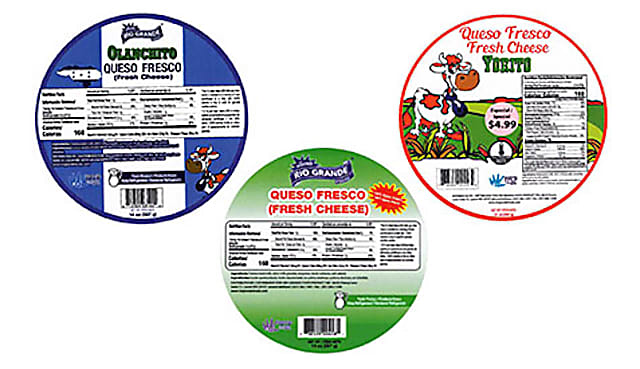The Centers for Disease Control and Prevention (CDC) identified the specific brands of cheese products that led to an outbreak of Listeria on the East Coast.
Earlier this month, the CDC issued a warning to the public after several illnesses reported in consumers who ate certain varieties of fresh and soft cheese.
“Don’t eat any fresh, soft Hispanic-style cheese (like queso fresco, queso blanco and queso pan) until we identify a specific type or brand that is making people sick,” said the CDC’s initial warning.
This week, the CDC identified the specific brands: El Abuelito, Rio Grande and Rio Lindo.
According to the CDC, all fresh queso products sold under these names must be considered suspect and may be contaminated with Listeria.
On Friday, January 19, El Abuelito Cheese Inc. recalled all fresh queso products made in the same facility with expiration dates until Sunday, March 28.
“Other El Abuelito cheeses made or handled in the same facilities as the queso fresco have not yet been collected, but the CDC is concerned that they may be contaminated and could make people sick,” officials said. “Researchers are working to identify any cheese products made or handled in that facility that may be contaminated.
As of Thursday, February 25, there were 10 diseases reported, including nine hospitalizations due to the outbreak. Of these 10 diseases, four have been reported in New York, one in Connecticut and others in Virginia and Maryland.
The authorities noted that Connecticut authorities found the strain of the Listeria outbreak in samples of fresh queso cheese from the El Abuelito brand collected in a store where a patient bought El Abuelito cheese.
According to the Food Inspection and Safety Service, consumption of foods contaminated with L. monocytogenes can cause listeriosis, a serious infection that affects mainly older adults, with weakened immune systems, pregnant women and their newborns.
Less commonly, others outside these risk groups are affected.
“Listeriosis can cause fever, muscle pain, headache, stiff neck, confusion, loss of balance and seizures, sometimes preceded by diarrhea or other gastrointestinal symptoms.
“An invasive infection spreads beyond the gastrointestinal tract. In pregnant women, the infection can cause miscarriages, stillbirths, premature birth or life-threatening infection in the newborn. In addition, serious and sometimes fatal infections in the elderly and people with immune system weakened systems. ”
Listeria affects approximately 1,600 Americans each year, killing about 260, according to the Centers for Disease Control. Most people suffer only from fever spikes, stomach pains, nausea, diarrhea and headaches.
Click here to subscribe to receive daily emails and free news alerts from Daily Voice.
